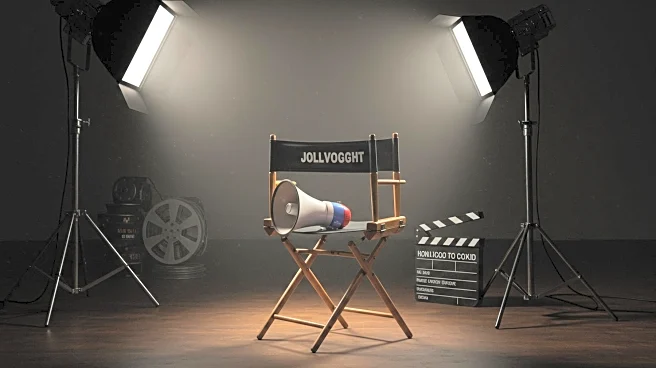What's Happening?
Jon Voight's initiative to revitalize Hollywood, which he presented to President Trump, has seen little progress since its announcement. The plan aimed to introduce federal film incentives to counteract international tax credits that have drawn production jobs away from the U.S. Despite initial discussions, no significant legislative action has been taken. Independent producers Steven Paul and Scott Karol remain hopeful for a bipartisan introduction of such incentives in Congress. Meanwhile, a modest proposal to extend Section 181, a tax deduction for independent film producers, has been introduced, but broader support is lacking.
Why It's Important?
The lack of progress on Voight's plan underscores the challenges facing the U.S. film industry in retaining production jobs. Federal incentives could potentially level the playing field against international competitors, preserving jobs and boosting the domestic economy. The initiative's stagnation highlights the complexities of achieving bipartisan support in Congress, especially in the current political climate. The outcome of these efforts could significantly impact Hollywood's global competitiveness and the economic health of related industries.
What's Next?
The next steps involve continued lobbying by industry stakeholders to gain broader political support for federal film incentives. The introduction of a bipartisan bill to extend Section 181 suggests some movement, but the success of broader incentives will depend on overcoming political hurdles. Industry leaders may need to engage more actively with lawmakers to emphasize the economic benefits of such measures. The potential reauthorization of Section 461, which aids film companies with uneven revenue streams, could also play a role in future discussions.









